
When the rain crackles on the tiles of his house, rue du Gué aux Aurochs,Aurochs Ford Street and the wind roars in the plane trees of avenue Gambetta like a wounded beast, he gives himself to long and deep dreams, heavy with mist and old smells. Lying in stormy uncertainty, he leaves his time without effort, as one crosses a threshold.
The archaeologist of Maisons-Alfort
He first hears the hooves of the aurochs hammering the mud of the ford, he feels the heaviness of the soggy ground under the footsteps of the beasts, the tension of the herd that hesitates, then advances.
The old MaisonnaisMaisons-Alfort resident becomes another. He is naked under a skin of beast, armed with a slag whose tip shines of dried resin. He looks, motionless in the reeds, his legs stuck in cold clay, his heart calm, his mind clear. He knows this plain, these black woods, these treacherous waters where the shadow of the sky mingles with that of the oaks. He knows them because he has always known them.
The Marne was not yet a river that borders the walks of Sunday joggers. It was wide, moving, unpredictable. It devoured its banks, removed bones, threw bleached femurs on silent blows. The fish were as big as children, the catfish slided between the piles of a Roman bridge that did not yet exist, but which Caesar, in the dream, had already built.
His people
He sees the fire, too, high in the night, standing on top of a mound. Around, his people, dark skins and painted faces, sang low words that he does not understand but feels the truth. On the sidelines, always, stood a young hunter, still a child, as it were, but already in the company of warriors. His gaze pierced more surely than the sharpest of spikes, with the lucid gravity of a sage defying the times to come.
There was no language here, only signs, glances, slow and sacred gestures. The world was pure, vast, terrible. And yet, in this unnamed land, there was an order stronger than that of the cities that will rise.
He often wakes up before dawn, his heart beating, his sheets wrinkled like an animal skin thrown away in a hurry. He lies down, eyes open looking at the ceiling, listening to the last echoes go away. And when the thunder fades behind the Fort of Charenton, he rises up, goes to the window, and looks at the rue du Gué aux AurochsAurochs Ford Street — peaceful, sleeping, banal. But he knows. He knows what the bitumen covers.
Thundering Yahweh
Thundering Baal
Thundering Ramman
Thundering Zeus
Thundering Perun
Thundering Tlaloc
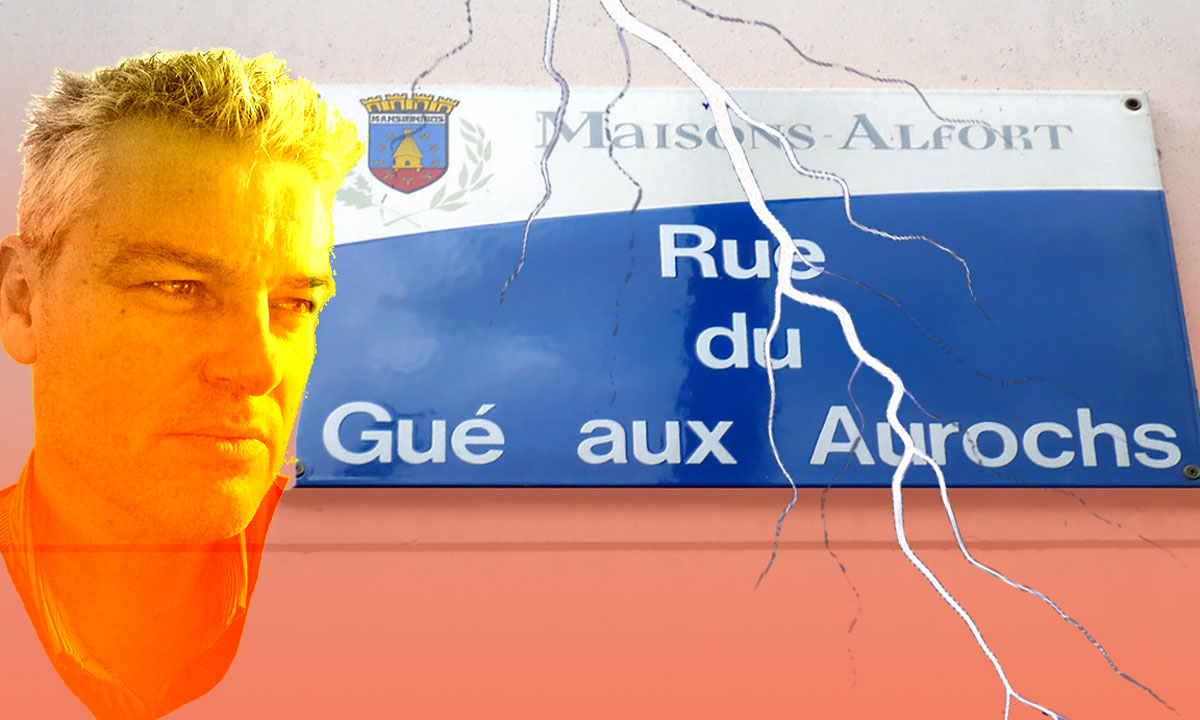
The ford masters
That night, the thunderstorm rumbles from the west, rolling over the Brie like an invisible herd. He fell asleep early, without dinner, the breath of the winds already rising from the banks of the Marne as a call. As soon as his eyelids closed, the dream seized him.
He was no longer an old man. He was young, strong, his torso streaked with scars and ochre paint. He was the son of an unnamed clan, a child of an age where men are born under the stars and die at the foot of oaks. His gaze pierced the mist of ancient morning.
The ford was there, wide and shining under the blue light of dawn. He had known this place forever. Generations of beasts spent there, each year, in the season of slow waters. First the timid deer, then the stag, and finally the ford masters: the aurochs. Massive, black, the mane beaten by the wind, the horns cut for war. They advanced in silence, preceded by their smell of musk, mud and dried blood.
The young hunter watched from the height of an overturned tree. His breath was united to that of the earth. He was not afraid. He is part of the moment, like rain, like wind. He heard the first hoof hit the stone: a deaf, primitive sound resounding in his chest like a gong. Others followed. They came. Numerous.
Aurochs in the mist
The aurochs finally appeared, one after another, emerging from the mist like ships of another age. Their eyes shone, not with fear, but with a heavy and peaceful consciousness. They crossed the grey Marne again and again, ignoring the centuries to come. There were dozens, perhaps hundreds. Their passage made the earth vibrate. Each beast carried the history of the world in its flesh.
The young hunter slowly swung his bow. He was only allowed one arrow. One. He aimed at the flank of a huge male, then slowly lowered his weapon. He could not. Not yet. He watched them pass, helpless and upset. It was too vast, too beautiful. The dream was there: not the hunt, but the vision!
The only thing worse than being blind is having sight but no vision.
A loud roar
When he wakes up, morning has come. His room is damp, the air fills with ozone. He goes to the kitchen, takes a glass of water and stand for a long time, thinking, in the silence of the morning.
I wrote silences, nights, I noted the inexpressible. I noted dizziness.
He knows it was true. That this ford under the asphalt still exists. That the aurochs, in their silent glory, have never left.
He is still standing at the window, the glass of water in his hand, when the rumble rises, distant, regular. It is not the storm; that one has fled far away, well after Créteil. It is something else. More dull, more rhythmic. The old Maisonnais does not need to look at the time. He knows that the 6.04 train was about to leave the station of line 8 “Maisons-Alfort-Ecole-Vétérinaire“.
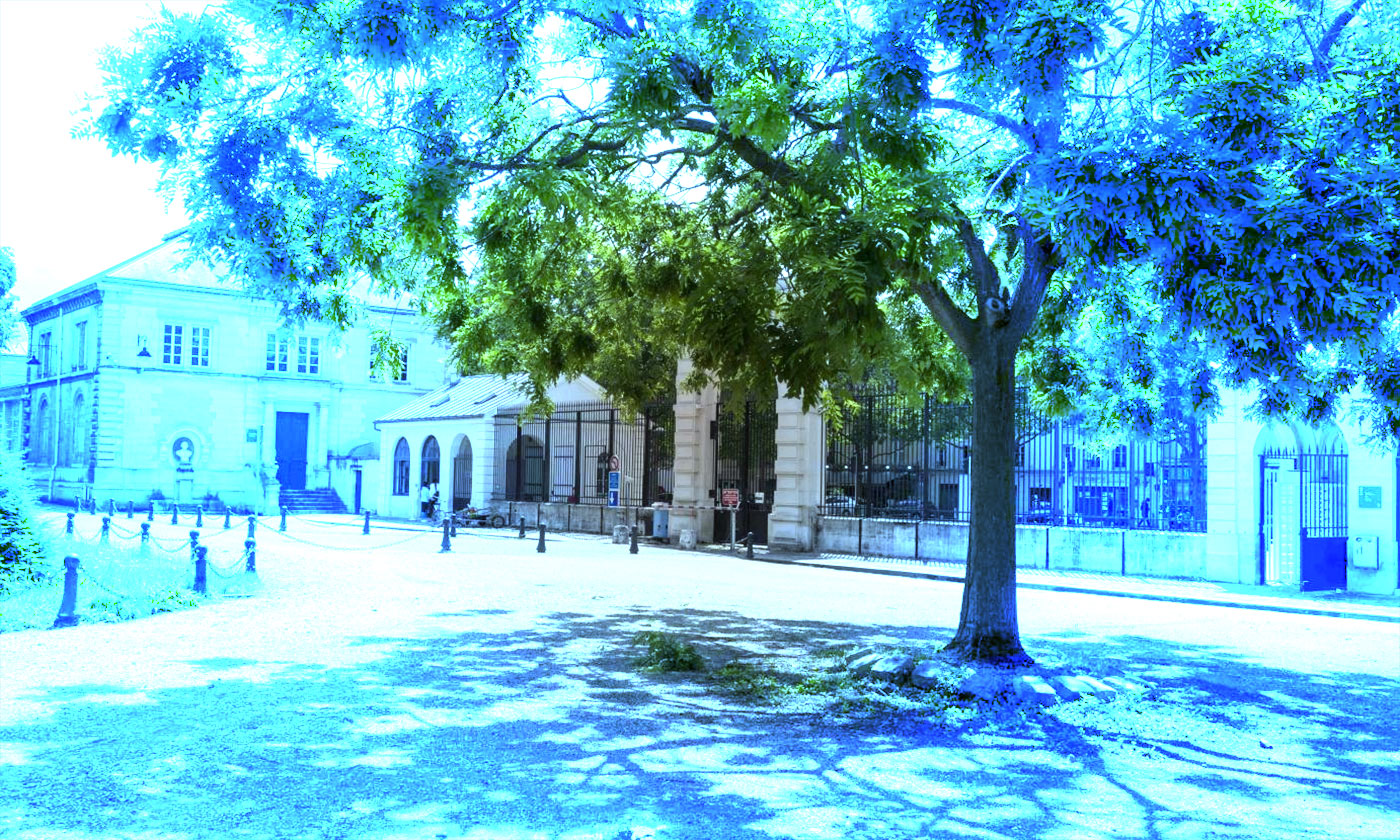
The return of the herd
That noise, that vibration, he knew them better than anyone. It rose from the bowels of the earth, passed under the pavilions, went up the foundations, touched the pipes, slipped under the bed. But this time, he did not hear it as a simple subway. No. That morning, still drunk from his dream, he recognized the vibration for what it really was: the return of the herd.
The same rumble, the same rocking, serious, telluric. It was no longer a convoy of metal, but a cohort of clogs beating clay, a forgotten passage that tried to remember itself. He heard the oar creak, but there perceived the raucous breaths, the horns that clash, the muffled cries of young people who try to follow.
The old ford bed
The old Maisonnais closed his eyes. In the darkness of his eyelids, the walls of the tunnel dilated. It was no longer a concrete tube, it was the old bed of the ford. The rails became two long footprints left by the cyclic passage of the beasts. And each oar, every day, resurrected the rite. The city thought it had tamed the earth, but the earth was laughing softly below.
The subway moved away. But long after the last car had gone to Charenton, the vibration remained. In him. In the walls. In the veins of the house.
Then he understood why, for years, he could not decide to move. Why this street, this particular place, this narrow strip between avenue du Général-Leclerc and the Marne, held him captive. He did not live in a house. He guarded a threshold.
He went back to bed at last, his heart still, and fell asleep without effort. In his sleep, in a new dream, the beasts passed, and this time he walked with them.
Trotting subway
The oar was sliding underground, but he in the dream was not standing in a wagon. He ran next to it. Barefoot, the chest beaten by wind, his powerful legs slit through dead leaves and bark debris. To his right, the aurochs trotted, massive and dark silhouettes, their skulls sweeping the air, their hooves plowing a ground that no roadway could erase.
Line 8, in his dream, no longer ran under the modern city. She was drawing an ancient furrow along the Bois de Vincennes, a wood that the old Maisonnais knew well to have played there as a child when the fences were hollowed out and the lakes silent.
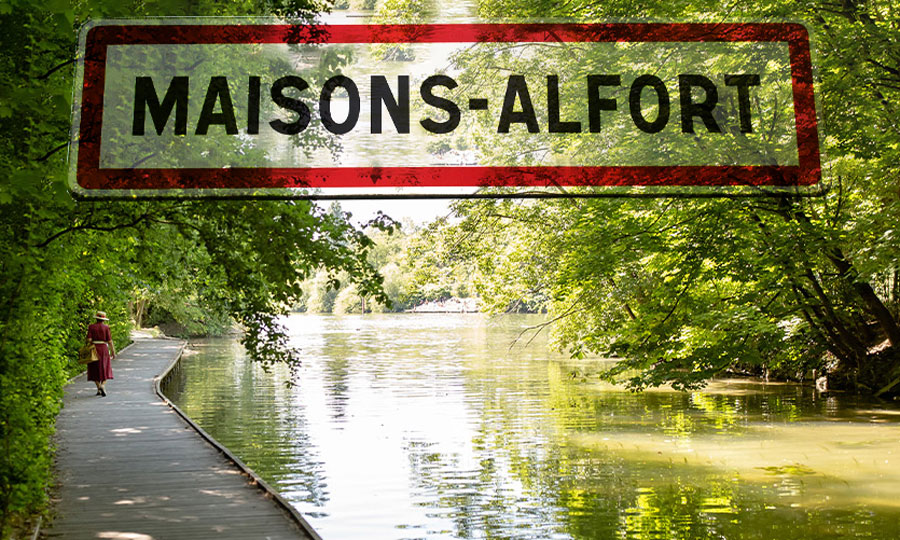
The silence of the beasts
There, between the stations “Liberté” and “Porte de Charenton”, the dream became a struggle. It was no longer a peaceful passage, a simple parade. It was the memory of a millenary confrontation between species and kingdoms. The beasts met here, at the bend of the wood, in a clearing that existed only at night, in the gaps of the paths too quickly forgotten. In the nearby Zoo, the passer-by moved on full moon evenings by the cry of the Wolf, does not know that in fact, eternal watchmen, the Wolves call the pack to feed on the remains of the confrontation.
At «Liberté», he saw the look of a wolf standing on a stump, his hair bristling, his mouth half-open, frozen in an expectation older than words. Freedom, yes -but for whom? For the man alone, or for the pack?
The call to oblivion
At “Porte de Charenton,” the men arrived. Those who came from the cold, arms covered with leather, holding stone axes and smoky torches. They yelled, responded by signals, circling the beasts. It was not hunting, it was a rite. Life for life.
In the dream, the old man from Maisonnais was shouting with them. He was no longer himself, neither a hunter nor a citizen nor a watchman. He was the sum of the memories of the place, the voice of the ground. And line 8, under its feet, became a river of fire, a corridor of drums, beating the call to the forgotten living.
Then the train slows down, whether it’s real or dreamt up. The old man opened his eyes just before the car entered “Daumesnil”. He was not on board, of course. He was still at home, lying on the bed, his heart beating with a knowledge deeper than language. The oar continued on its way, but he, in the dream, did not travel anymore. It floated in a belly of stone, to the deaf rhythm of the hooves that had hammered the earth long before the first cobblestones.
After “Daumesnil”, the walls widened again. Paris opened up. He saw, in overprint, the old swamps. Men shoved their makeshift pirogues between willows and reeds, while women, silent, weaved nettle nets at the edge of the ponds. The subway did not pass here, no. It touched what had remained suspended: the immemorial gestures, the blue fumes, the silence of the beasts coming to drink.
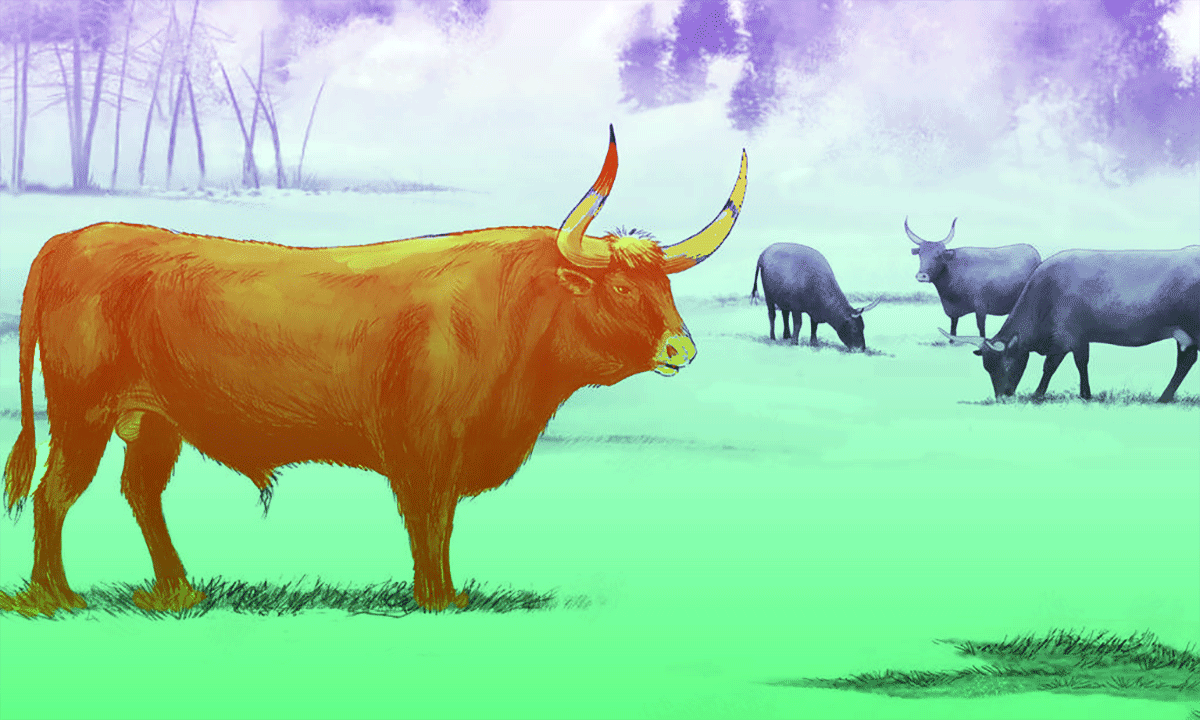
The ford ferryman
At «Reuilly-Diderot», the walls spilled a thousand years old water. In this station, there was an invisible crypt, a sanctuary of flint, where the hunters had gathered after the passage. He saw the stones lined up, the whitened bones arranged like relics. He understood that the memory had never disappeared — it had just settled down, layer after layer, under the lines and plans of the subway, shops, schools.
People will forget what you told them, they will forget what you did to them, but they will never forget what you made them feel.
At “Bastille,” he stopped. It was no longer a dream, it was a vision. He was alone on the platform, but the arches were full of shadows. Animals slept there-deer, bears, wild horses. They lay there, under the column, like forgotten minor gods. And among them, standing, the men of the beginning. They looked at the Maisonnais, without hostility. They recognized him.
For he too was a watchman. Not a soldier. Not a citizen. But a gatekeeper of a passage, guardian of a secret. A ferryman.
The same breath
And while he was still going down -because the dream had no limits-, he felt the train crossing «République». There, the world was tilted. It was no longer the memory of game, nor that of clans. It was that of cities. Of cries. Of tumult.
But in the galleries of République, he heard, however, very distinctly, the same rumble as at Maisons-Alfort. The same breath. More muffled, but still there. Like a heart that persists, even buried under the centuries.
The old Maisonnais, in the dream, laid his hand against a tiled wall. And in this cold contact, he felt the ancestral warmth of beasts, blood, clay. He understood that Paris also, under the layers, still bore the traces of the ford. There had never been a cut, only overlays.
And when he finally arrived at “Opera”, everything changed. He emerged in a strange light, raw and golden. Modern sounds assailed him. The voices, the horns, the neon lights. But he was not afraid.
He walked through the hall like a revenant. No one was looking at him. He was invisible, like all those who know. He climbed the steps and went out into the open air.
And there, in a breath, the dream was extinguished. He was in Paris. But the ford was in him.
Those who know do not speak and those who speak do not know. The wise teaches by his actions and not by his words.
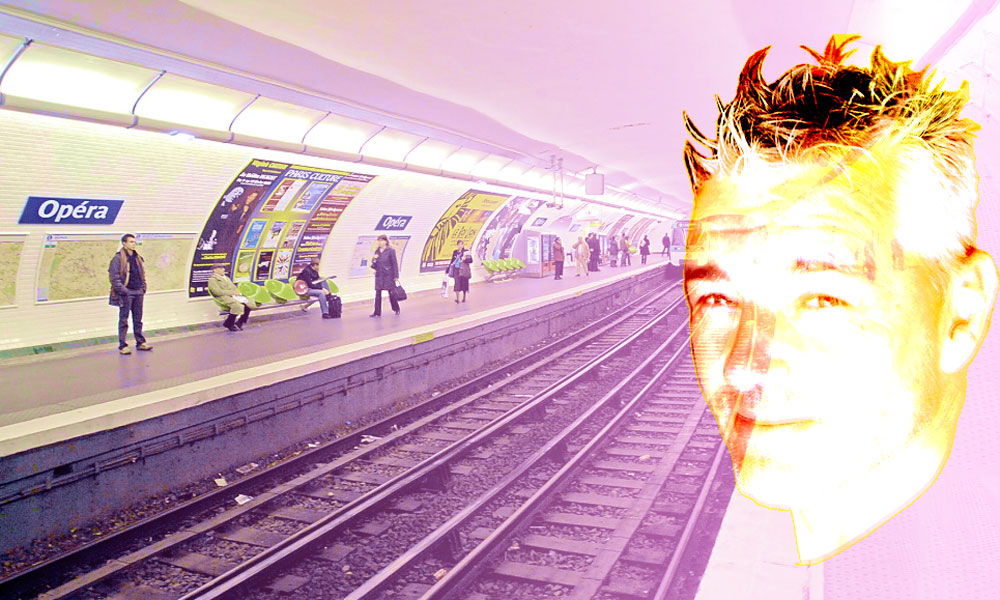
Coming soon: Aurochs Ford (part 2)
Articles by Alain Aillet
Odious Odin, Frightening Freya
Aurochs Ford (part 1)
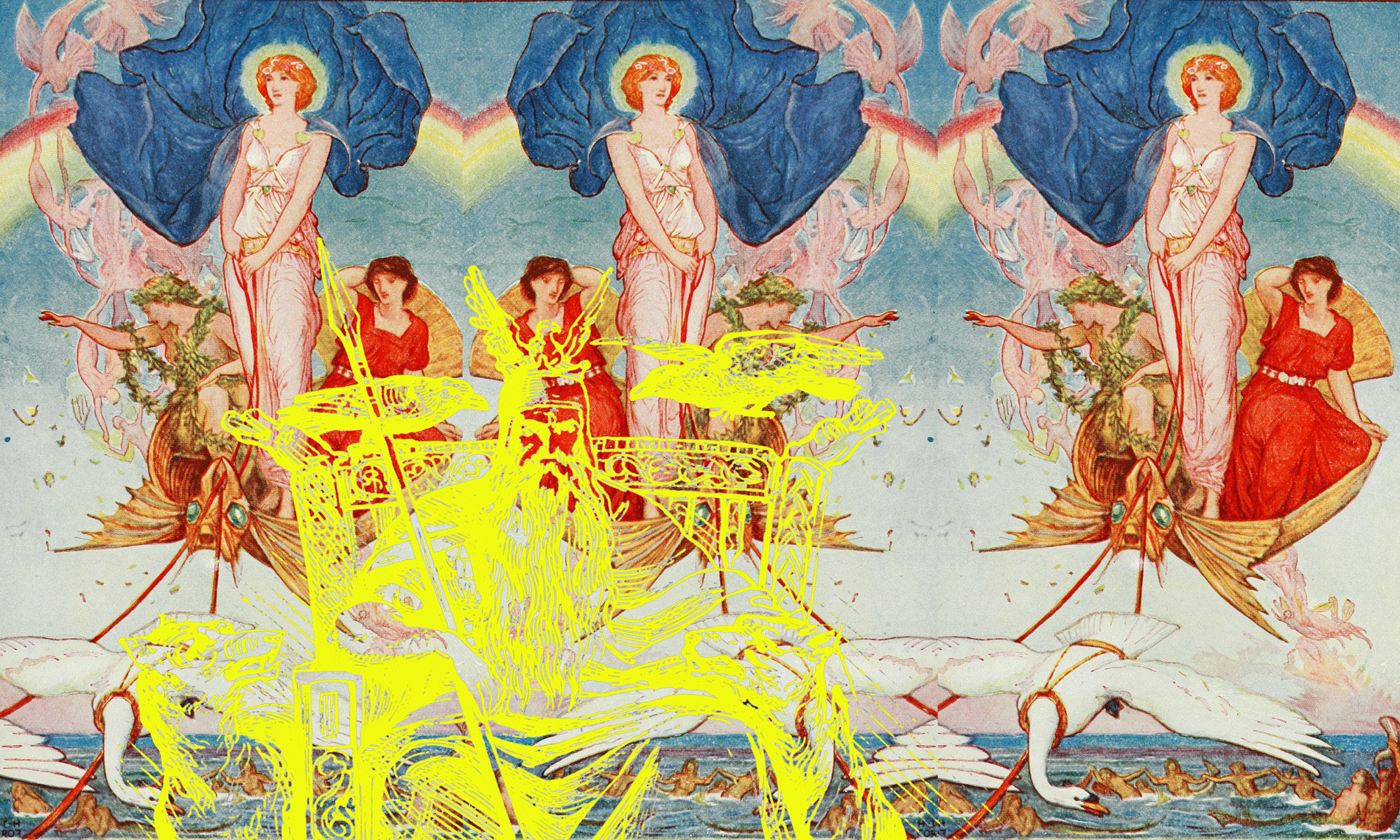
But as for you, initiated into the sacred mysteries, take confidence because divine is of origin the race of the mortals and with those who know how to awaken in their soul the divine which slumbers there, nature reveals all things.


